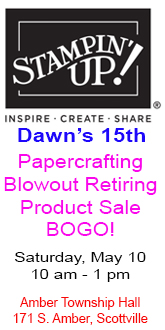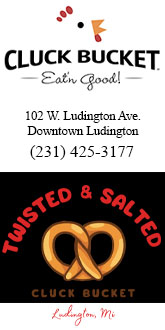
Sonja Siewert
Teacher Tuesday: WSCC’s Sonja Siewert.
Teacher Tuesday is a presentation of Shelby State Bank, www.shelbystatebank.com.
By Kate Krieger, MCP Staff Writer.
VICTORY TWP – Growing up in rural Minnesota, West Shore Community College professor, Sonja Siewert had a love for science from a young age, so majoring in the area of science was no big surprise for her, but she knew she didn’t want to end up doing soley research for her entire career either, which pushed her more towards teaching.
“I did not want to go into research in academia as I did not want to have a job that was so dependent on writing grants for a living,” Siewert said. “I was a chemistry tutor as an undergraduate at St. Olaf College in Northfield, Minn. where I earned my bachelor of arts degree, and then moved to Bozeman, Mont., where I earned my Ph.D. I do not have a master’s degree, but over the past two years, I have completed 18 graduate credits in the geosciences from Mississippi State University, all online. I supported myself in graduate school by being a teaching assistant and received a teaching award. I love seeing students understanding the role of science in their life and the applications in so many disciplines. I much prefer the smaller lecture and lab sections at WSCC as I am able to help the students more individually. As a woman in the sciences for many students I am giving them their first opportunity with a science professor that is not a white male and that their life is open to many opportunities.”
Remaining out west for a while, Siewert began teaching while still in college.
“I started my career teaching at Montana State University as a graduate teaching assistant in chemistry,” she said. “But once I earned my Ph.D. in physical chemistry, I first taught at Northland Community and Technical College in Thief River Falls, Minn. After earning tenure there and after four years, I decided I wanted to go to a warmer climate in a larger community. I was thrilled when West Shore Community College selected me as their new chemistry professor. And the community is larger and warmer (Thank-you lake effect from Lake Michigan).”
Siewert is in her 23rd year at WSCC and teaches a variety of science courses at the college and really enjoys seeing her students develop a greater understanding for the field as well as an enjoyment for science.
“Seeing that moment in a student’s face when they realize the chemistry and geology that they are learning is not something to be memorized, but to further develop their critical thinking and problem-solving skills,” she said. “Higher education is not about getting ‘As’ for grades, but rather understanding and applying the material. This is not only for the current course but being able to apply the skills and knowledge to future academia and life. I get excited about science, especially quantum chemistry, which is my next topic in general chemistry in this term. I like to share the knowledge to answer ‘why.’”
Siewert also said that even though completing a course and doing well in that course is important for students, it is even more important that the student gains a true understanding of the “why” and “how” of the courses as well.

“Acceptance that learning is often difficult and challenging,” she said. “If the course is ‘easy,’ one needs to think more critically about the purpose of the course and applications to the future. Yes, grades are important, but actually being able to apply the skill sets is much more crucial. I heard from a cardiologist out of this area that he didn’t see the purpose of stoichiometry or organic chemistry while he was taking the courses at a big university. But later in med school he realized he was applying those skill sets on a daily basis. Physicians typically see the result of reactions that are occurring in the body, and chemistry helps them work backwards to determine the cause and hopefully the treatments.”
As a woman in science, Siewert encourages more females to enter the field and she has some sound advice for any student looking to pursue education as a career.
“Take your education seriously, learn the material and more so understand,” she said. “I am a strong believer in the brain to hand connection. Students need to learn how to take notes better, and then use those notes in their study. With the conversion to entirely online, many students initially think that they can just “google” the test answers if the tests and homework are all online and open book. You have to do more than just have the lecture playing audio while one is playing video games. I show the students how I have been taking notes and using them in my geoscience online courses I have been taking. However, professors can, and should write questions that show how the students are able to problem solve (at least for chemistry) and explain in their own words. Copying answers from anywhere is plagiarism and is not showing the student’s knowledge. For students who want to go into education, they need to truly ask themselves why, what are their goals. K-12 needs to provide a well-rounded education for all students, to lead them down the path for a successful career. Most students change their mind multiple times in their academic careers in regard to majors, and many types of jobs may be in their future. There are many career paths, occupational, academic, industry, etc. But a strong education will provide a strong lifetime foundation.”
As a community college professor, Siewert has also been affected by COVID-19 and the switch to more distance learning courses, but some of her courses she has already been instructing online, so the switch wasn’t as difficult for her in some ways.
“I have been teaching online geology for over two decades, so I was ready to transition my courses once the stay-at-home order occurred last March,” she said. “The biggest challenge is that teaching all online takes a lot more time to do it well. I break down all of my ‘lecture’ materials into six-to-ten minute videos, use online homework systems in my chemistry courses, but had to develop my physical science: chemistry & earth course from scratch this term. Finding lab materials for the students to be online is challenging. I use Labster in some chemistry courses, which is a virtual reality online lab. I have recorded lab experiments in the chemistry lab and had students analyze local geology in the area in which they live. Yes, I am getting ‘zoomed’ out, but I remind the students that as professors we are here to help them learn. I wish students would put their video cameras on more often in Zoom and participate more. The student needs to be responsible for their education, truly understand these academic opportunities and take the initiative to be successful.”
Please consider helping to fund local news. Mason County Press and Oceana County Press are available for free thanks to the generous support of our advertisers and individuals who support our service. Click on the PayPal donation button located on the top right of our website.
This story is copyrighted © 2020, all rights reserved by Media Group 31, LLC, PO Box 21, Scottville, MI 49454. No portion of this story or images may be reproduced in any way, including print or broadcast, without expressed written consent.


















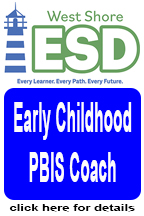
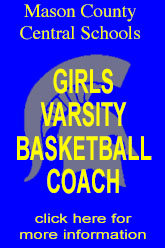

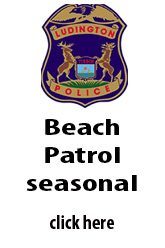












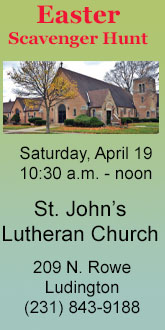






.png)

